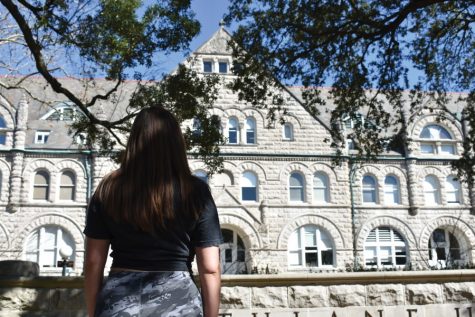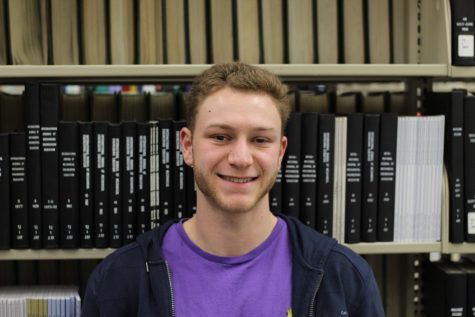Road to Graduation: Students pursue national scholarships

Gina LoBiondo | Production Manager
Senior year isn’t all fun and games. For many, the stress of post-graduation plans can be overwhelming, which is why we’re introducing our newest column, Road to Graduation. Every week we will check in with seniors about their post-grad plans and talk about their anxieties and aspirations.
As the spring semester gets underway, many juniors and seniors are looking at post-graduate opportunities. Some are applying to prestigious scholarships and grants in the hopes of funding research, study or teaching opportunities.
Danny Finley, an economics and finance major who applied to the Fulbright U.S. Student Program, found out last Friday that he advanced to the final round of consideration.
While he was abroad in Brazil in the fall of his junior year, he volunteered to teach English at an elementary school, where he discovered his passion for education policy. If he is named a Fulbright finalist, he will be awarded a prestigious government grant to teach English at a college in Brazil.
Congrats to our 13 @FulbrightPrgrm awardees! #Tulane is one of the top #Fulbright producers for the ’16-’17 year.https://t.co/lKKdTqqful pic.twitter.com/W2KwJsmNZA
— Tulane Alumni (@tulanealumni) June 13, 2017
Finley was one of 56 students at Tulane to apply for the scholarship this year, and one of 19 to advance as a semifinalist. Tulane students have historically fared well in the application process, and last year, the university was named a 2016-17 Fulbright Top-Producing Institution.
Many factors contribute to Tulane’s success in recruiting and producing Fulbright scholars, from the university’s growing Honors Program to its strong international relations and international development departments.
Hanan Rimawi, a 2018 Fulbright semifinalist who applied to teach in Jordan, attributes her success thus far to the support of the Honors Department, especially Jennifer Beers, the coordinator of nationally competitive scholarships.
“Dr. Beers was an invaluable mentor throughout the process,” Rimawi said. “She read my essays [and] provided excellent feedback which prompted revisions. … I couldn’t have put together as strong an application as I did without the help I received from the Honors Program, namely Dr. Beers.”
Finley also found the Honors Program to be an important resource, from the decision to apply to the application submission.

Students apply for prestigious scholarships to fund research and travel.
If he receives the grant, he hopes to apply what he learns from the education system in Brazil to educational reform in the U.S. According to Finley, it’s important for applicants to respect different education systems and view the scholarship primarily as a chance to learn how to improve U.S. education.
“I think that’s a reason why a lot of people who do apply for Fulbright don’t necessarily have the best application,” Finley said. “They approach it from the wrong direction and kind of like a savior complex, which I think is something that is just a quick way to not get [the scholarship].”
In May, Finley will find out whether he will be among the 21 percent of applicants to become finalists.
Though Fulbright is the most well-known scholarship, there are numerous other competitive scholarship opportunities that cover a wide range of interests.
The Truman Scholarship, for instance, grants student leaders in public policy and public service $30,000 to use toward a graduate school of their choice. This year, Tulane is endorsing four students for the Truman Scholarship. These four students are finishing up their applications and must submit them by next Tuesday.
“[Applying has] been a long process, and it’s really stressful,” Truman Scholarship applicant Peri Levine said. “It’s been my life. Every other day I’m like, ‘Ah, Truman! Gotta work on it.'”
While the application process is extensive, students who apply have more to gain than the prize itself, according to Beers.

“While being recognized with a competitive award is certainly valuable and exciting, The Honors Program believes that engaging in the application process is as important as receiving a competitive award,” Beers said.
Sam Shovers, a Fulbright applicant who did not advance as a semifinalist, said the application gave him a chance to reflect on his interests and reaffirm his passion for teaching. He encouraged all interested students to apply.
“I would tell anyone if they’re thinking about it to go for it,” Shovers said. “… [Even] if it doesn’t work out, if at the end of the day you can say that you tried you’re best and you’re happy with the product, then like, that’s a win.”
Your donation will support the student journalists of Tulane University. Your contribution will allow us to purchase equipment and cover our annual website hosting costs.
















Leave a Comment